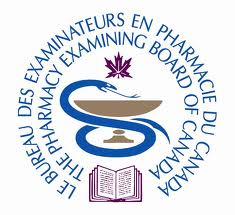FDA Warns About Teething Medication Main Ingredient Benzocaine Linked to Rare, Serious Disease
May 5, 2011 -- The FDA has issued a warning to consumers about the use of benzocaine, the main ingredient in over-the-counter liquids and gels used to reduce teething pain in very young children.
Benzocaine is associated with a rare but serious condition called methemoglobinemia, which greatly reduces the amount of oxygen carried through the bloodstream. In the most severe cases, the condition can be life-threatening.
Benzocaine by Various Names
Benzocaine gels and liquids are sold under numerous brand names, including Anbesol, Hurricaine, Orajel, Baby Orajel, and Orabase, as well as store brands. It also is sold as lozenges and in spray solutions.
The products are used to treat pain caused by teething, canker sores, and irritation of the mouth and gums.
The FDA says methemoglobinemia has been reported with all strengths of benzocaine gels and liquids, including concentrations as low as 7.5%. The federal agency says most cases occur in children aged 2 or younger who were treated with a gel for teething discomfort.
The FDA says people who develop the condition may become pale or gray, become short of breath, feel fatigued, confused, and lightheaded. It also may cause a rapid heart rate.
Immediately Seek Medical Help for Symptoms
Signs and symptoms of a reaction to benzocaine usually appear within minutes to hours of using it. The FDA says adults should seek immediate medical attention if symptoms show up after using benzocaine.
The FDA says benzocaine products should not be given to children younger than age 2 unless under the supervision of a health care professional. The American Academy of Pediatrics recommends giving children with teething problems a teething ring that has been chilled in a refrigerator, or gently rubbing the child’s gums with a finger.
Adults who use benzocaine gels or liquids in the mouth should follow recommendations on the label of the product, which should be stored where it can’t be reached by children, the FDA says.
However, the FDA says labels of marketed benzocaine products do not, as of yet, contain warnings about the risks of methemoglobinemia.
The FDA offers these tips for parents:
- If benzocaine products are used, watch carefully for signs and symptoms of methemoglobinemia, including pale, gray, or blue-colored skin, lips, and nail beds. Also, shortness of breath, fatigue, confusion, headache, lightheadedness, and rapid heart rate are symptoms of a reaction. If any symptoms occur, seek medical attention immediately.
- Keep in mind that problems caused by benzocaine can show up after a single administration of the product.
- Use benzocaine gels and liquids sparingly, and only when needed, and not more than four times a day.
- Side effects should be reported immediately to the FDA Medwatch program.




Comments